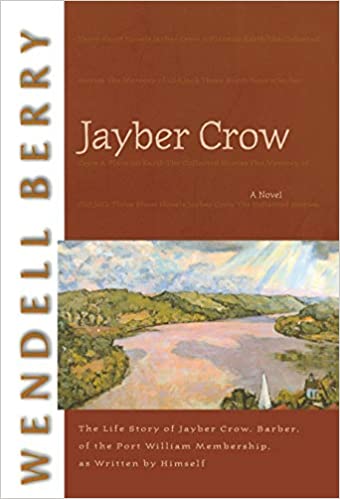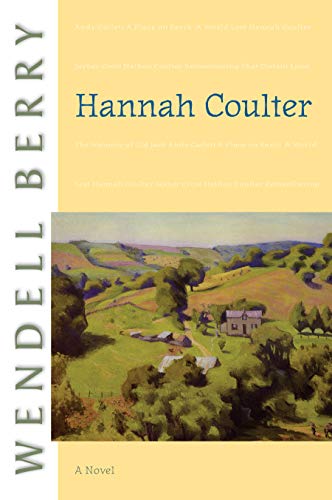Jayber Crow
“This is a book about Heaven,” says Jayber Crow, “but I must say too that . . . I have wondered sometimes if it would not finally turn out to be a book about Hell.” It is 1932 and he has returned to his native Port William to become the town's barber.
Orphaned at age ten, Jayber Crow’s acquaintance with loneliness and want have made him a patient observer of the human animal, in both its goodness and frailty.
He began his search as a “pre–ministerial student” at Pigeonville College. There, freedom met with new burdens and a young man needed more than a mirror to find himself. But the beginning of that finding was a short conversation with “Old Grit,” his profound professor of New Testament Greek.
“You have been given questions to which you cannot be given answers. You will have to live them out—perhaps a little at a time.”
“And how long is that going to take?”
“I don't know. As long as you live, perhaps.”
“That could be a long time.”
“I will tell you a further mystery,” he said. “It may take longer.”
Wendell Berry’s clear–sighted depiction of humanity’s gifts—love and loss, joy and despair—is seen though his intimate knowledge of the Port William Membership.
More info →Hannah Coulter
Hannah Coulter is Wendell Berry’s seventh novel and his first to employ the voice of a woman character in its telling. Hannah, the now–elderly narrator, recounts the love she has for the land and for her community. She remembers each of her two husbands, and all places and community connections threatened by twentieth–century technologies. At risk is the whole culture of family farming, hope redeemed when her wayward and once lost grandson, Virgil, returns to his rural home place to work the farm.
More info →



